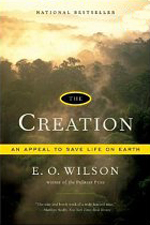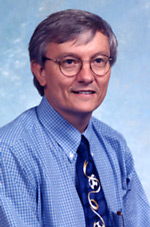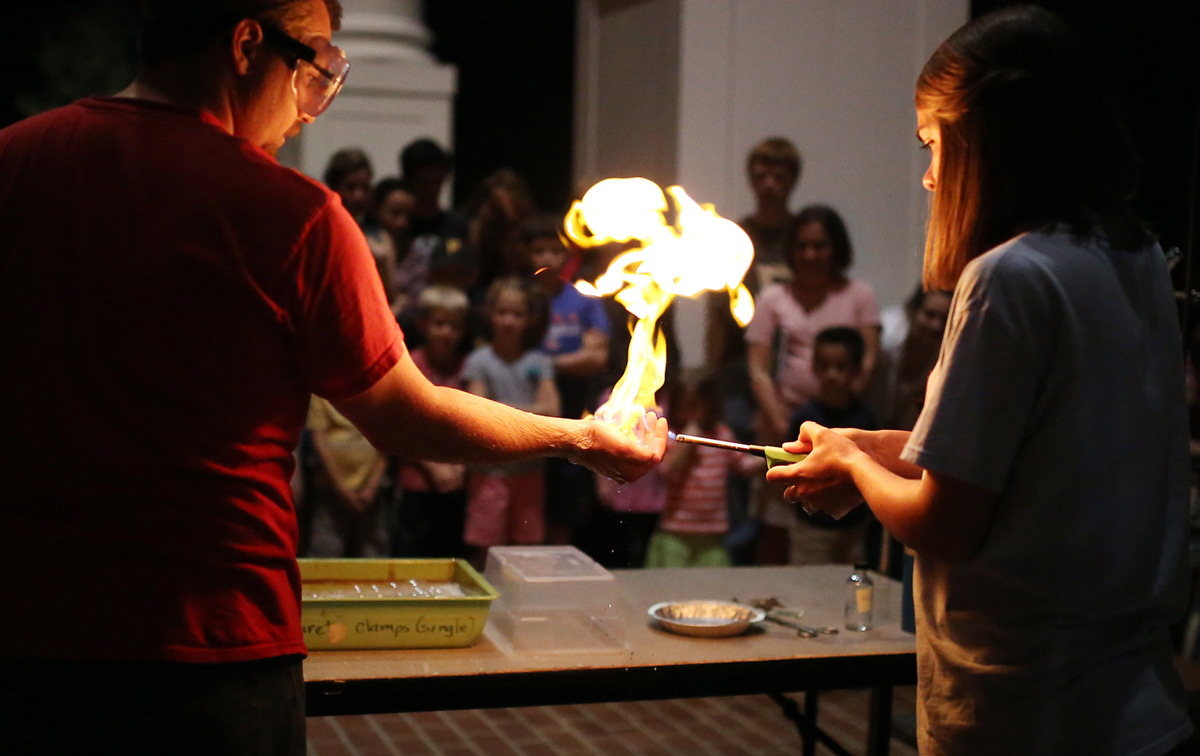Review of "The Creation: An Appeal to Save Life on Earth"

Author(s): E.O. Wilson
Published: September 10, 2007, W. W. Norton & Company, ISBN: 0393330486
 by James A. Huggins, Ph.D., University Professor & Director of the Hammons Center for Scientific Studies
by James A. Huggins, Ph.D., University Professor & Director of the Hammons Center for Scientific Studies
January 18, 2008 -
Dr. E.O. Wilson makes an impassioned plea for a faith-based initiative to save the biodiversity found on this planet. He writes the book as if it were a letter to a Southern Baptist pastor; perhaps even a friend with whom he disagrees on many points but believes he can bring to agreement on others. He grants no quarter while pressing his personal views of life’s origin and in his description of the plight of our ecosystems. His advocacy of building and capitalizing upon the common ground between science and faith is well-reasoned and, despite being a bit patronizing, deserves every clergyman’s attention. As I read this book I almost felt as though I were the very one to whom Dr. Wilson was making his appeal. Perhaps this is a consequence of great writing but more likely it is because I am a bi-vocational servant of our Lord, a pastor and a doctoral prepared biologist. While I struggled upon my first introduction to the feud between empirical knowledge and knowledge by revelation, I now find no personal conflict between what is truly known and known truly; I know there are realms yet unexplored by this biologist and I anticipate the day that for me knowledge will be made complete.
Dr. Wilson rightly recognizes that science and religion are the two most powerful forces in the world today. The pauperization of the planet, at the hands of mankind, is also a correct assessment; the extinction rate for current life forms was not overestimated nor was the urgency of his message underestimated. We live in the “end times” for more reasons than those we Southern Baptists typically associate. We live in a fearsome epoch of species mortality; a magnitude of loss that threatens life as we know it. If we could only adopt a live and let live policy, the alliance of these two could perhaps “save” the earth and mankind from itself. Wilson astutely makes his appeal to religion rather than science for he undoubtedly recognizes that we, to our utter shame, are the less dogmatic of the two. I am not making an argument against the participation of this proposal but simply stating truth. In fact, I believe we should, while keeping our eyes wide open and asking for some serious concessions about what is scientific fact and what is “belief” on the part of science, join the effort as a matter of our best interest.
Dr. Wilson informs us that the purchase of civilization has been at the betrayal of nature and this is a point with which few of us can argue. From the secular humanist’s standpoint, Dr. Wilson explains that our human dilemma is the result of what the human species has become: an odd mix “stone age emotion, medieval self-image and godlike technology”. From this I believe he is say we are a species “of the earth” that, at least in part, attempts to operate on a metaphysical or “spiritual “ that was born of Bedouin origin while using our considerable intelligence to thwart, either through ignorance or selfish intent, the earth which has sustained us for so long. T o beat the dilemma he proposes a solution comprised of education of nature and why we should care in addition to increased science education. He offers some time tested methods for science education and while I love the concept and desire greatly that his methodology permeate public, private and home school curricula, I fear his advise on raising a naturalist and teaching science is too little too late. I was a bit surprised that he did not level a barrage of suggestions on how the technology of gods might be used to circumvent and repair the damage it has already done. Perhaps there isn’t sufficient time, concern or technology to save our planet but at least there is a desire on the part of at least one great scientist of our time to coalesce two great institutions of our earth to make every attempt. While several evangelicals have called for people of faith to recognize stewardship principles revolving around our planetary home, he is one of the first scientists to make a real effort to nudge the church from its well established point of complacency. For this, I applaud his effort and appreciate his insight.
E.O. Wilson is one of the most celebrated biologists of our time. His God-given ability and his passion for nature have driven him to the ends of the earth in search of the answers to the mysteries of life with its many forms, variations and interactions among the creatures of planet earth. I have read others of his works, they are many and wonderfully well done, and I never fail to marvel at how he becomes so lost in the creature to the exclusion of the Creator. Yet he is cognizant of the journey he has taken and the choice he has made. Despite having been exposed to worship services directed at the Creator from an early age, he has chosen to build his altar and worship at the feet of the creature and to praise the process that, in his mind, delivered us this vast array of creatures for our benefit and enjoyment. While I doubt that he appreciates or loves nature any more than I, we have chosen very different paths. As children we both immersed ourselves into the nature around us and I suspect that what I know was true for me was also true for Dr. Wilson, we found no reason to separate faith and our avocation. This changed as we sat in our university classes; the world of higher education often separates the natural from the supernatural, the secular from the heavenly and life from the afterlife. In lecture halls all across the world, students are admonished that Science assumes that all that there is can be quantified; it leaves little room for the later for lack of empirical data. I suppose this is where faith will either flourish or die. Little in this life has saddened me more than to read of Dr. Wilson admission to the death and burial of his faith. I continue to pray for the resurrection thereof. I hope you will join me in that prayer.

